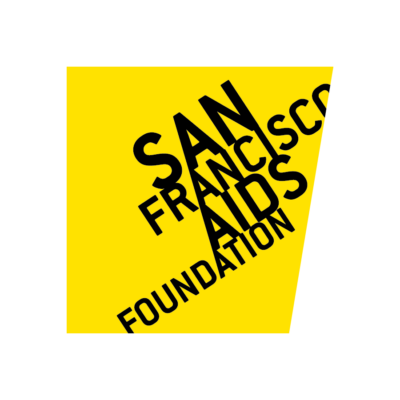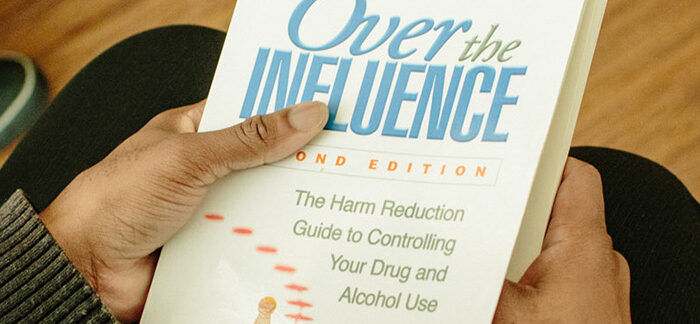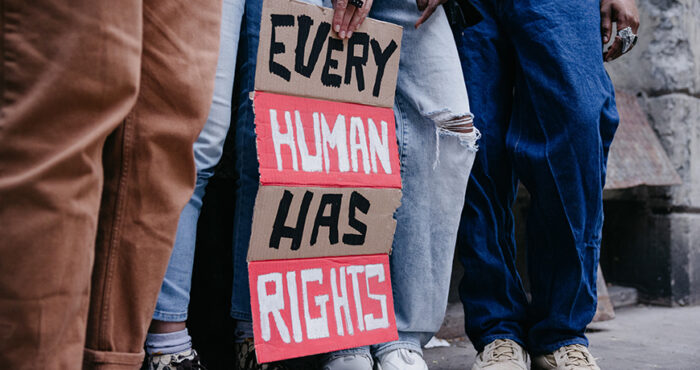The Stonewall Project: 20 years of innovation, support & harm reduction
In April 1998, the Stonewall Project, now a program of San Francisco AIDS Foundation, opened its doors and welcomed its very first clients—gay men who wanted help with their crystal meth use. At the time, the harm reduction philosophy of the program, and the treatment strategies used to help clients, were a radical departure from the traditional drug treatment approaches being used.
The program quickly saw success, and over the last twenty years has continued to expand its programming, grow its reach, and innovate its harm reduction services.
In honor of the program’s 20th anniversary, Michael Siever, PhD, the founder of the Stonewall Project, and Mike Discepola, MA, senior director of behavioral health services and the Stonewall Project at San Francisco AIDS Foundation, shared some highlights of the program and how it has benefitted our community.
Addressing the intersection of sex & drugs for gay men
The first innovation of Stonewall was to identify—and address—the unique needs of gay men needing help with crystal meth use. To this day, Stonewall provides services that helps clients dig deeper into why they use drugs and alcohol that may be related to their sexuality and gender identity.
“A lot of drug treatment facilities don’t help clients with the drugs and sex/intimacy work,” said Discepola. “They’ll get you clean and sober—you’ll ‘white knuckle’ it—but you won’t deal with the issue that maybe caused you to start using in the first place. A lot of gay men use drugs to have sex, and maybe have never had sober sex. Sex and intimacy is something that Stonewall helps people think through as part of any changes they make to their substance use.”
Psychiatry services for people who use drugs
Psychiatry services have been part of the Stonewall Project for many years. People coming to the program are offered mental health services to stabilize conditions including depression, anxiety, and more. Importantly, the program has never required that people be sober in order to qualify for mental health treatment, which was a controversial treatment strategy when it was first initiated.
“Back then, many doctors had the viewpoint that if someone was psychotic, say, they couldn’t be treated until they were 30 days sober from meth,” said Siever. “But just because someone is using methamphetamine doesn’t mean that they can’t take medications or adhere to medications. What our psychiatrist did is treated anyone who came through our door. If someone was depressed, or had an anxiety disorder, we treated their symptoms so that they could start feeling happy and successful and actually able to address the things going on in their life.”
Incorporating HIV prevention and care
Even before the Stonewall Project moved from UCSF to San Francisco AIDS Foundation, Siever had his eye on how the program might benefit HIV prevention and HIV care.
“Meth use and HIV were so intertwined,” he said. “Meth is actually a driver for HIV infection, and so helping people to address their meth use was one way to reduce the impact of HIV. HIV prevention and care was really always a part of Stonewall, because these issues can’t be separated. I trained staff to help people holistically, to help them figure out how to make their lives better.”
Since the Stonewall Project became part of San Francisco AIDS Foundation in 2008, linkage and referral to other foundation groups, programs and services is built-in, and clients have the opportunity to access HIV prevention services including pre-exposure prophylaxis (PrEP), linkage to HIV treatment and care, and more.
The Speed Project helped us focus on higher-needs clients
When the Stonewall Project joined San Francisco AIDS Foundation, it merged with The Speed Project. Led by Terry Morris, now director of the San Francisco AIDS Foundation 6th Street Harm Reduction Center, The Speed Project (TSP) offered drop-in groups, book clubs, a monthly zine and other services for people who use speed—many who were homeless, marginally housed, or with other competing health and life concerns.
Combining forces with TSP offered a chance for growth and change, said Discepola. Stonewall added to its menu of services additional lower-threshold services that served people in a different way than the more formal Stonewall counseling enrolled program.
“We started to figure out, over time, that people could choose what they were ready for. And that we would not value or judge any level of involvement. So we started working on a really comprehensive model where there are lots of different opportunities for people,” said Discepola.
PROP: From abstinence only to a community of acceptance & support
In 2010, San Francisco AIDS Foundation acquired the Positive Reinforcement Opportunity Project (PROP) from Walden House, a behavioral health services organization. PROP, a contingency management program for people who want to stop using crystal meth, was nicknamed “Peeing for Dollars” by participants because participants earned cash rewards for providing urine samples without traces of stimulants. Wrapped in with the Stonewall Project, Discepola saw an opportunity to improve upon the model.
Instead of requiring people to be fully abstinent from stimulants in order to participate, Discepola made the program accessible to people regardless of their use. A three-hour PROP lounge gives people time to explore their relationship to stimulants and get support in meeting their goals. People may still participate in urinalysis testing, and get rewarded for negative tests, but it is not a strict requirement of the program.
“We added the love,” said Discepola. “People may eventually want to stop using meth, but in the meantime their goal might be to reduce the amount they use or make steps to improve their use. We still welcome those people into the program and they still get a lot of support and love. It’s not all or nothing.”
Three times a week, PROP meets for counseling, to socialize and get support, and to test for stimulants.
“PROP offers clients structure, support, community, and an opportunity to create an individualized plan around stimulant use,” said PROP manager Rick Andrews. “Clients who are pursuing abstinence make cash points that increase in value with each consecutive negative test. These incentives can be exchanged at any time for gift cards of their choosing. Clients who are pursuing harm reduction goals of decreasing use, using more safely, planned use or questioning their use can come and meet other participants for support and connection. While these clients may not be receiving monetary credit for their visits they have a space to be honest about their use without fear of being shamed or judged. They also still receive one on one counseling time with a counselor if they choose.”
Engaging outreach campaigns
Stonewall Project staff have produced a variety of playful, though-provoking and educational media campaigns over the years to advertise services, educate the community about harm reduction strategies, and reach men beyond those who could come in for services in person.
In 2000, the team produced Tweaker.org, a website devoted to educating and informing gay men about crystal meth. The project was also accompanied by in-person community engagement, at Folsom Street Fair, Dore Alley Fair, the Real Bad dance party, Steamworks, a monthly café chill out space, and more.
Kevin Mosley, LCSW, current director of clinical operations, guided the development of the website and in-person engagement with input from a community advisory board of men who had relationships with speed in their life.
“Everything we did—the website, the front-facing outreach engagement, and the print materials—was offered intentionally in an honest and tongue-in-cheek, user-friendly way. The content always came from the amazing group of volunteers, their ideas and their research. The focus was always on, ‘We’re here for you when and if you need us,’ and never, ‘I think you need this or that or the other,’” said Mosley.
In 2006, the Stonewall Project received funding to develop Tweaker.org Español, for Spanish-speaking people. “We developed a community advisory board of Latino gay men from all over Latin America. We had these lengthy, amazing discussions about how to phrase things because Spanish is slightly different in every country, and differing words people would recognize or understand. It was a fascinating process,” said Siever.
Opening the program to people who use alcohol, and more
In 2010, a new certification from the city and new funding streams allowed the Stonewall Project to welcome clients who wanted to address substances other than crystal meth, including heroin, GBH, and cocaine. Now, clients come to address the role of all kinds of substances in their lives.
When the team added alcohol counseling to their roster of services in 2016, they launched the Cheers Queers campaign with local nightlife “celebrities” sharing harm reduction tips and advice related to alcohol use.
“Cheers Queers has been one of the most amazing innovations that we’ve had in the last five years, because it’s helped us reach people who ordinarily would never come to us,” said Discepola. “The whole idea is to reach people earlier, before they might feel like they qualify as having an issue with alcohol that needs to be addressed. We know that most people in the Castro will answer “yes” to the question of if they’ve had a binge drinking episode in the last 12 months. So we know the population size is giant since many folks don’t see themselves as having a problem. For this intervention to reduce harm and improve functioning is great. We’re just trying to integrate this idea of—‘hey, let’s have a conversation about this. How might you do this better?’”
We’re a safety net
“It is our ethical and moral responsibility, as citizens, to take care of one another,” said Discepola. “The Stonewall Project was founded in those principles that we don’t demonize behavior or human condition; we try to understand it, and we try to create a place where it’s welcome.”
Stonewall is a safety net program, said Siever and Discepola, serving people who may have “failed out” of other drug treatment programs. Because Stonewall supports people with goals other than total abstinence, and values acceptance and “meeting people where they are at,” Stonewall becomes the treatment option of last resort for many.
Even small changes are valued.
“As a staff member, it can be hard to see so much suffering right in front of you,” said Discepola. “But we accept people where they are, and they may not be ready at this moment to make a change. Or maybe the change is that they’re coming in and talking to you. We see—and support—some amazing changes in people’s lives. We see people start to feel happy again. We see people become sexually active again. We’ve had clients living on the street that go back to school. We’ve had clients become interns with us.”
Training the future – the Clinical Internship program
Establishing a Clinical Internship program helped the program expand its services, and at the same time expand the model of harm reduction outside of the program.
“The clinical internship program is really about training the next generation of harm reductionists,” said Robert Holum, LMFT, director of the Clinical Internship Training Program. “We get to educate our interns about the public health issues that are important to us—HIV prevention, substance use, mental health, sexual health, overdose prevention—in ways reflecting our experience and our values. We can help ensure that the people who will lead the counseling profession in the future are prepared to help our communities in affirming ways.”
Every year, eight clinical interns join the team and learn by providing counseling services to clients.
“Staff counselors and interns work side by side facilitating groups, handling crises, and consulting with one another. A number of our interns have presented their own training modules on topics such as counseling people with disabilities, body image issues, and intimate partner violence,” said Holum. “Our training curriculum is unique in the depth and quality of its focus on harm reduction principles, motivational interviewing techniques, and cultural humility. Our interns have found this focus extremely valuable for their professional development and their future job prospects, and they and their graduate schools regularly tell us that our program is among the best in the San Francisco Bay Area.”
The enduring philosophy of harm reduction
Since its inception, the Stonewall Project has been firmly rooted in harm reduction philosophy—a novel approach to drug treatment in the early years.
“The idea for Stonewall was that it would not be an abstinence-only 12-step program,” said Siever. “But no one knew any other way to do things. What I brought to the program was nonjudgmental counseling. And a focus on helping clients achieve success—no matter what that success looks like. If your goal is set too high, you’re going to fail. So you start with the goal of not using for one day, or maybe three hours. Something so that they feel success, and are able to take even a teeny positive step in their life.”
Now, Stonewall supports people with three harm reduction goals (that people can switch between as needed). People employing targeted abstinence aim to stop using some substances, while continuing to use others that may pose less of a problem in their lives. Substance use management reduces the harm that substances play in their lives, by helping people set goals around when and where they use, how often, and how they care for themselves before, during and after using. Full abstinence is another component of harm reduction, where people choose to stop using all substances.
“The important part is that we support people whatever their goals might be, and even if they don’t know exactly what changes they might like to make in their lives,” said Discepola.
—
Learn more about the services offered through the Stonewall Project.










